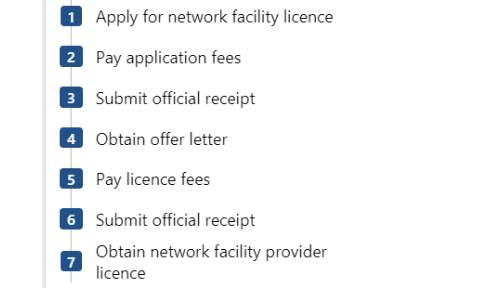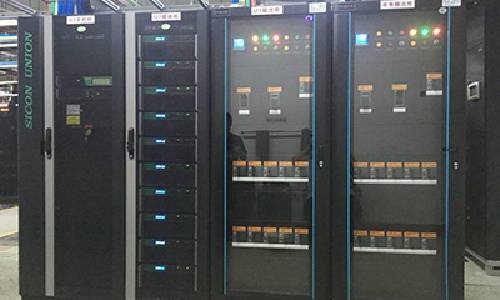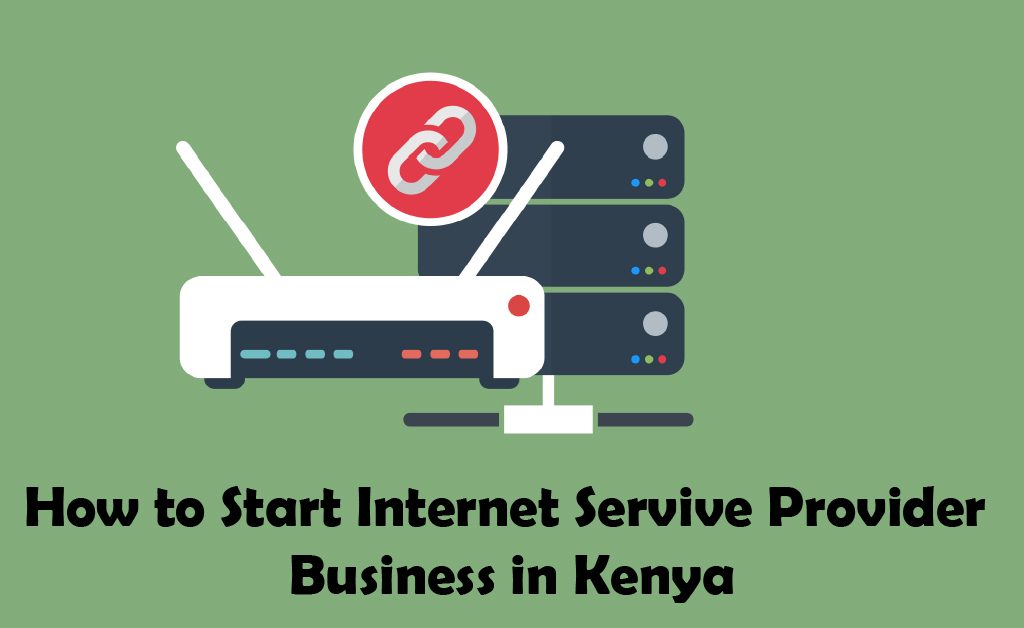Here is a step-by-step guide to starting a profitable internet service provider business in Kenya.
Contrary to popular opinion, it is not as difficult as most people think to launch a successful internet service provider (ISP) business in Kenya.
The ever rising and steady demand for internet has turned it into a large market that is up for grabs. In this read-out, we will look into the dynamics of setting up your own internet service firm and what it entails from licensing with the Communications Authority of Kenya to how to make it profitable.

You will be offering internet connectivity to your subscribers that in turn allows them to connect to the World Wide Web. Among Kenya’s major ISPs are Safaricom, ZUKU, Liquid Telecom, Jamii Telecommunication Limited, and Access Kenya Group.
You can choose to be a wholesale service provider by purchasing these services in bulk and reselling to the general public. Alternatively, you can also become a regional wireless service provider (WISP) or broadband provider by stating your own company.
The Different Types of ISPs
Starting a profitable internet service provider business in Kenya will require you to familiarize yourself with the different types of ISPs. Here is a breakdown.
Tier 1 ISP
The backbone of the Internet is made up of Tier 1 Internet providers, who also construct and oversee infrastructure such as underwater cables. They do not supply end users with traffic, but rather all other ISPs. Tier 1 ISPs also own and manage their operating infrastructure that largely includes routers and other intermediary devices that make up the Internet backbone.
Examples include; Comcast, China Telecom, British Telecom, Vodafone, Virgin Media, Softbank Japan and Cox, Charter Communications.
Tier 2 ISP
A Tier 2 ISP is a service provider that delivers internet traffic to end users through Tier 3 ISPs by combining peering with other Tier 2 ISPs and using paid transit via Tier 1 ISPs.
Some Tier 2 ISPs have investments in underwater cables, and they also own and operate their operational infrastructure. In order to provide internet services to their clients, who are mostly other Telcos and Tier 3 ISPs, these ISPs have private peering relationships with content providers and other Tier 2 networks. They also buy transit from Tier 1 providers. Their main markets are the national and regional ones.
Examples include; Comcast, China Telecom, British Telecom, Vodafone, Virgin Media, Softbank Japan and Cox, Charter Communications.
Tier 3 ISP
Tier 3 ISPs are largely oriented to provide end consumers in particular geographic areas with internet connectivity. For access to the wider internet, they depend on upstream providers, or Tier 1 and Tier 2 ISPs. For household and small business users, Tier 3 ISPs frequently act as their point of contact with customers. Most individuals would probably want to be Tier 3 ISPs, others would look to be Tier 2 ISP who are a wholesale provider.
On the other side, end users—who may be householders or corporate enterprises—can access the internet through local ISPs and wireless service providers (WISPs).
1. Conduct market research
Before starting a profitable internet service provider business in Kenya, it is important to determine who your clientele will be and as such, conducting market research into an intended is critical. Some pointers you will need will include;
- Determine Demand
Conduct proper evaluation to find underserved areas or niches. These could be residential, businesses, schools, or rural areas.
- Analyze Competitors
When analyzing your competitors, pricing and packaging options are key factors to consider. Consumers are often price-sensitive, so it’s important to offer competitive rates.
However, service quality and speed are also important considerations, as customers are willing to pay more for faster and more reliable connections. Customer service and support are also critical, as consumers expect prompt and effective assistance when they experience issues.
- Target Market Decide whether to focus on home users, small businesses, or large corporations.
2. Develop a Business Plan
A business plan is the ultimate blueprint to starting the journey to a profitable internet service provider business in Kenya. A clearly outlined and well-informed business plan could just be the secret ingredient to success of any business.
A business plan should outline the following;
Business Model
Decide whether you will be a full-fledged ISP or a reseller.
For a regional wireless service provider (WISP), that is, a full-fledged ISP some of the documents you will be required to have include:
- The filled applications service provider form.
- Certificate of incorporation.
- Certificate of compliance.
- A Certificate from the Capital Markets Authority.
- List of shareholders and directors.
- Tax compliance certificate.
- National identity cards of all local directors and Passports for foreign directors.
It is important to know that one is required to meet the above conditions before making an application to CA. It is mandatory to adhere to the above guidelines before starting a profitable internet service provider business in Kenya.
However, you will need company permits, VAT registration, and a tax identification number (PIN) if you decide to become a reseller. If you are purchasing internet from a well-known ISP, such as Zuku, and you are not selling the service to any clients, you do not require any permits. If you set up the service for a few family members, no one will be bothered.
Local Government Business Permits are also needed if you plan on starting a profitable internet service provider business in Kenya.
Services Offered
Clearly outline the type of services you intend to offer (e.g., fiber internet, Web hosting services, software packages )
Budget
Familiarize yourself with the costs of starting, running and maintaining an ISP. You may encounter some if not all of these costs during this venture. Here are some of the costs while at it
- Licenses and permits
Operating license: This charge is determined by your yearly gross turnover or a minimum of 800,000.
- Network Facilities Provider (NFP) license: This license is required if you plan to build your own network.
- Local Government Business Permits: These are required to operate your business.
Equipment
- Fiber connection: You can purchase a fiber connection for a building and use the rooftop to start your network.
- Relay sites: You can use high spots like hills, mountains, or tall buildings to extend your network to customers.
- Wireless hardware: You’ll need to evaluate the available options for wireless hardware.
Ongoing operations
- Administrative expenses: You’ll need to consider the cost of running your business, including rent, wages, and utilities.
- Maintenance: You’ll need to keep your network running smoothly, even in bad weather.
Connection type
3. Register Your Business
Registering your business is step one in starting a profitable internet service provider business in Kenya. It is important because it protects a business’s brand and intellectual property, and provides legal protection. Moreover, it also helps a business establish credibility, access funding, and continue to operate even if ownership changes.
ISP regulations in Kenya are under the Communications Authority of Kenya. Under their regulations those interested in large scale commercial license must:
- Be registered in Kenya as a sole proprietor, company or partnership.
- Their business must have permanent registered office premises in Kenya.
- Document details of all their directors and shareholders.
- Provide a minimum of 30% of your business shares to Kenyans. The requirement is for on or before the end of three years after receiving a license.
- Have updated evidence of tax compliance.
It is mandatory for new ISPs to first apply for an application service provider license. The process has six steps that include:
- Apply for network facility license.
- Pay the application fee.
- Submit the official receipts.
- Obtain offer letter.
- Pay license fees.
- Submit official receipt.
- Obtain the network facility provider license.

Company Registration
The eCitizen online platform in Kenya allows you to register a business with the Registrar of Companies.
Procedure for registering a business
Steps to register a business
- Conduct a name search
- Create an eCitizen account
- Apply for name reservation
- Complete the business name application form
- Pay the registration fee
- Submit the application
- Receive your certificate of registration
Additional requirements
- Register with the National Social Security Fund (NSSF)
- Register with the National Hospital Insurance Fund (NHIF)
- Register with the Kenya Revenue Authority (KRA)
- Obtain a business permit from the County Government
Name Approval:
Before starting a profitable internet service provider business in Kenya, ensure your business name is unique and approved.
Tax Compliance:
Register with the Kenya Revenue Authority (KRA) for a PIN and VAT.
4. Obtain Licenses and Permits
A rule of thumb while starting a profitable internet service provider business in Kenya is adhering to set rules and regulations. This not only ensures the safety of your operations and recognition of your business by the government but also allows for the protection of your clients’ data and personal information from falling into the wrong hands.
The Communications Authority of Kenya (CAK) issues licenses to internet service providers (ISPs) for telecommunications services. These licenses include:
Telecommunication Service Provider License
Required for companies that offer telecommunications services like mobile, data, and voice.
Content Service Provider License
Required for companies that provide content over telecommunications networks, such as media streaming, online platforms, and internet services.
International Gateway Systems and Services License
Allows for the establishment and operation of international gateway systems.
Submarine Cable Landing Rights License
Permits the establishment of submarine cables systems for international connectivity services.
Network Facilities Provider License
Permits a licensee to establish and operate communication infrastructure.
Community Network and Service Provider License:
Allows communities to provide internet services through community networks.
Frequency Spectrum License
If you’re using radio frequencies for wireless connectivity.
NOTE License fees vary depending on the type of service and coverage area (regional, national, or international).
5. Secure Funding
It is pivotal to establishing costs related to starting a profitable internet service provider business in Kenya. Estimate startup costs, which include licenses, equipment, and operational expenses.
It is worth noting that starting a WISP is a more costly venture because of the permits, licenses, equipment and the need to employ or have professionals on standby to run them.
Capital can be sourced from loans from financial institutions such as banks and SACCOs and personal savings. You can also invite investors.
6. Acquire Necessary Equipment
Acquiring the necessary equipment for starting a profitable internet service provider business in Kenya is a crucial step that ensures reliable service delivery.
Infrastructure
It encompasses all the infrastructure that allows data to flow in and out:
- Cabling: Copper or fiber optic cables distributing signals throughout the structure.
- Equipment: The brains of the network – switches, routers, patch panels, servers, and more

Purchase routers, servers, switches, antennas, and modems.

Bandwidth
Partner with a reliable upstream provider (Tier 1 ISP) to purchase internet bandwidth.
Backup Systems
Ensure you have power backup solutions like generators or UPS systems.

7. Build Your Network Infrastructure
One of the secrets to starting a profitable internet service provider business in Kenya is the you choose to use for your operations. Infrastructure includes hardware, software, and cabling.
Modern infrastructure gives you a competitive edge while setting up shop.
Network Type
Choose between fiber-optic cables, wireless (Wi-Fi), or satellite depending on number of target market, size of area and how much each costs to acquire.
Site Survey
Conduct a feasibility study to determine the best technology for the target area. This comes a long way in establishing stronger connections in case of bad weather and other unexpected occurrences such as power outages.
Installations
Set up a network operations center (NOC) for monitoring and managing the network. Having a centralized point to manage all activities on the network simplifies daily running and offers quicker solution to hiccups.
8. Hire and Train Staff
Having professionally qualified staff will be needed to work on maintaining the network.
Key Roles:
Network Engineers
Design, build, and maintain networks that allow devices to communicate and exchange data.
Customer Service Representatives
Handling inbound calls and customer support requests, producing leads for sales that turn into new clients, and determining and evaluating client needs in order to satisfy them.
Sales and Marketing Personnel
Cultivate ties with customers, comprehend their demands, and guarantee their fulfillment.
Technicians
Installation and troubleshooting.
Also provide training to ensure your team is skilled and efficient.
9. Develop a Marketing Strategy
Deciding on the best and most suitable marketing strategy is focal to starting a profitable internet service provider business in Kenya. Being a start up you will have to be more conscious in your selection.
Digital Marketing
Local Outreach
Use flyers, billboards, and word-of-mouth to promote services in target areas. These are proven strategies to creating awareness locally.
Using digital marketing & social media platforms, Google Ads, and having a professional website can help you reach a wider market much easier and quicker while at the same time saving on costs. You can also leverage email marketing and influencer marketing.
Offers and promotions
Offer introductory discounts especially to first time users, referral programs for those already using your network and bundle packages to attract customers. Additionally you can provide free installation or a trial period to entice first-time users.
10. Focus on Customer Experience
Customer satisfaction should be your top priority given how regular networks face problems with the weather and other interruptions.
Reliable Service
Addressing clients’ problems on time and reducing to a minimum makes you a dependable service provider.
Customer Support
Provide 24/7 support via call centers, live chat, or email.
Feedback
Customer feedback is the best way to improve your services and attract more clients. Striking a balance between both positive and negative feedback helps you find a go between for optimal services in running a profitable internet service provider business in Kenya.
Regularly collect feedback to improve your services.
11. Comply with Legal and Regulatory Requirements
An essential component of running any business, including starting a profitable internet service provider business in Kenya, is adhering to legal and regulatory regulations.
ISPs are primarily regulated by the Communications Authority of Kenya (CAK), although other laws and regulations must also be followed.
- Apply for appropriate license category based on your services, follow the right licensing procedure and regularly renew your license to maintain compliance.
- Consumer protection – Observe the consumer rights specified in the CAK regulations and the Consumer Protection Act (2012).
- Tax compliance – Register for and comply with tax obligations.
12. Scale Your Business
A strategy approach is necessary to scale a new Internet service provider (ISP) in Kenya in order to increase operational capacity, boost client base, and boost profitability while controlling expenses and service quality.
- Expand your coverage area gradually.
- Create affordable, flexible plans
- Introduce new services like cloud hosting or cybersecurity solutions.
- Build brand awareness
- Partner with schools, businesses, and government institutions for bulk services.
Cost Estimates
Startup costs can vary depending on your coverage area, type of network, and licensing fees. Here is a breakdown of the various requirements.
Summary of Costs
| Category | Cost Range (KES) |
| Licensing and Regulatory | 150,000 – 400,000 |
| Network Infrastructure | 2,500,000 – 6,000,000 |
| Office Setup | 350,000 – 850,000 |
| Marketing and Branding | 130,000 – 550,000 |
| Total Initial Investment | 3,130,000 – 7,800,000 |
| Monthly Bandwidth Cost | 300,000 – 1,000,000 |
| Employee Salaries | 320,000 – 550,000 |
| Office Operations | 80,000 – 230,000 |
| Maintenance and Repairs | 50,000 – 150,000 |
| Total Monthly Operational Costs | 750,000 – 1,930,000 |
CONCLUSION
To sum up, starting and growing an ISP in Kenya necessitates a thorough strategy to preparation, finance, and implementation. You can create a profitable and long-lasting company by comprehending the market, taking care of legal and regulatory obligations, and utilizing creative tactics. Finding finance requires looking into a variety of options, including grants, debt, equity, and partnerships, and making a strong business case with a polished pitch and business plan.
Your competitive edge will be strengthened by concentrating on underdeveloped markets, cutting initial expenses, and strategically scaling operations. Furthermore, long-term growth and profitability depend on upholding legal compliance, guaranteeing financial transparency, and providing outstanding customer service.
A new ISP in Kenya offers a profitable opportunity due to the rising demand for dependable and reasonably priced internet connectivity, particularly in underserved and rural areas.

